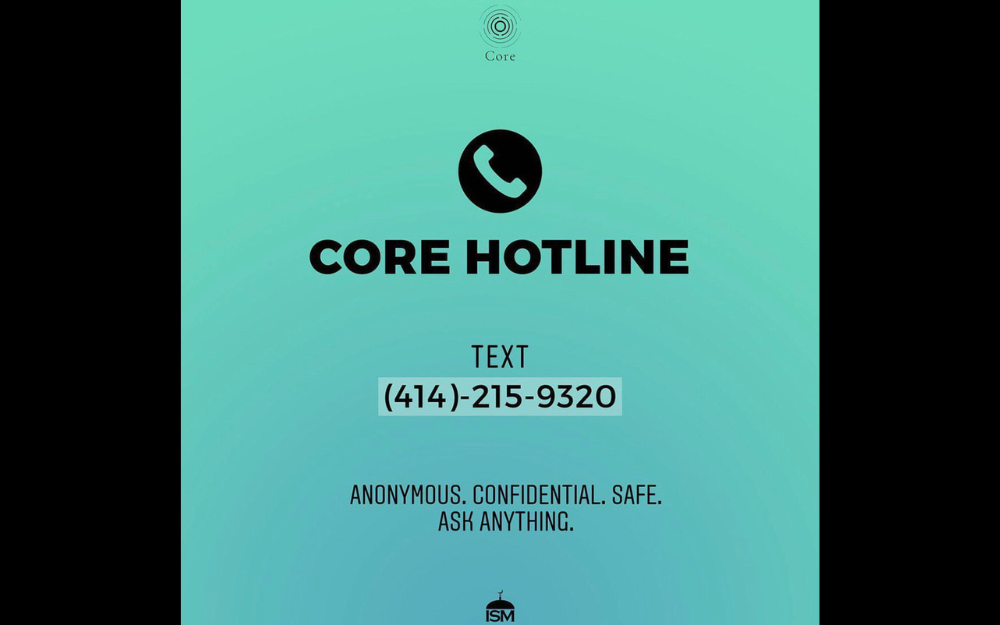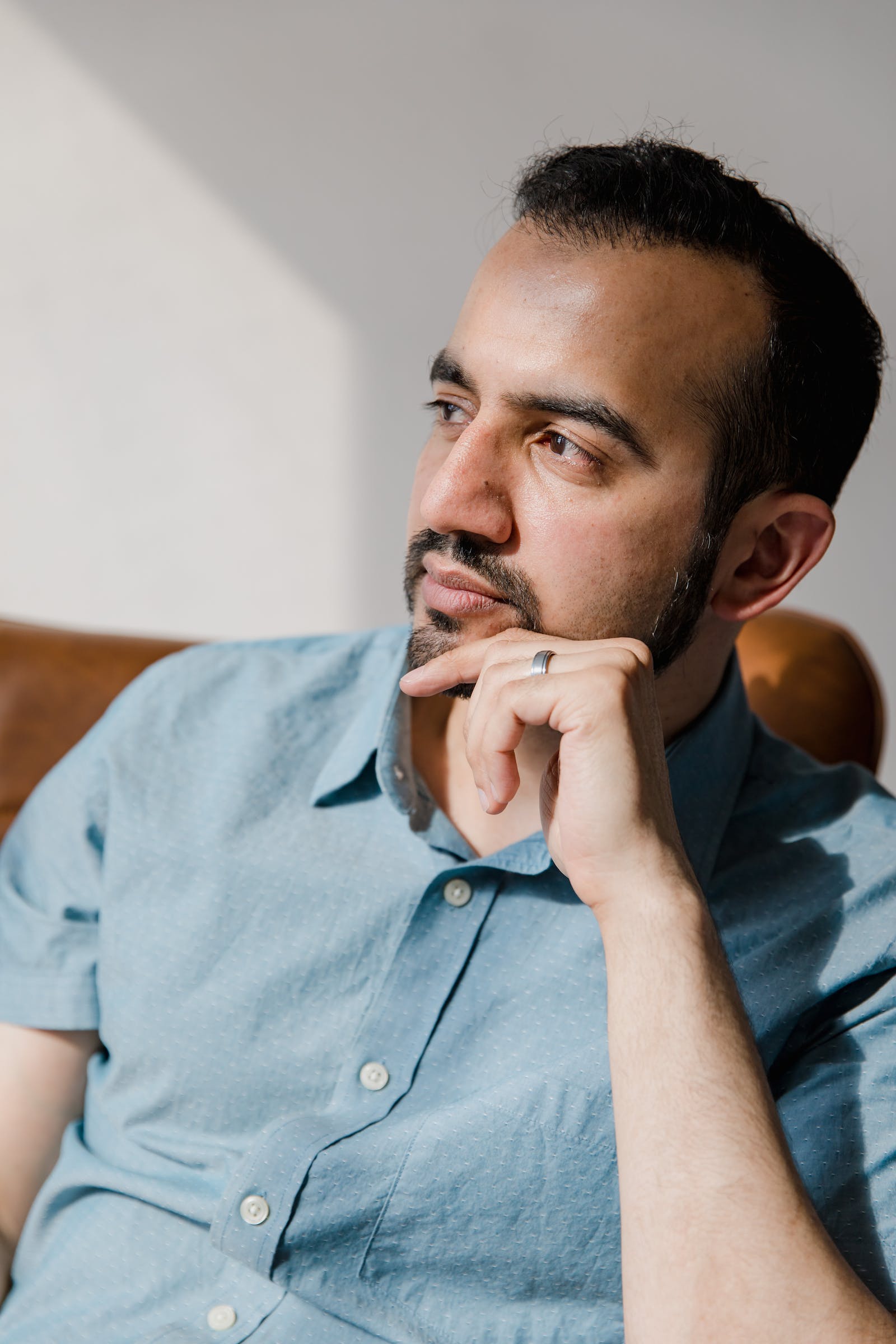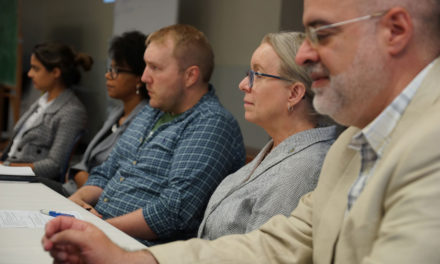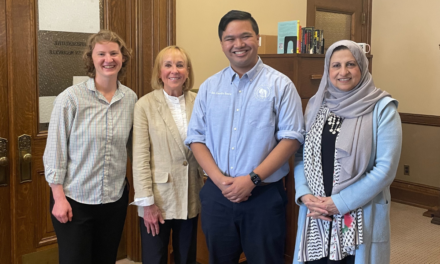
“How do we know Islam is the true religion? Why are there so many religions? Why wouldn’t Allah just make everyone Muslim?”
“If I use one of these new nail polishes that are permeable to water, would it be permissible to do wudu and pray with it on?”
“I don’t understand why homosexuality is so bad. What is the reason?”
“If a person lost her husband and they had frozen embryos, can the wife continue on the path of becoming pregnant even after her husband is deceased?”
“Will Allah forgive me even if I can’t find myself able to forgive someone who keeps hurting me?”
“Is buying and selling stocks halal (allowed)?”
“Can parents force you to wear the hijab?”
“Is it haram (a sin) to masturbate?”
“One of my friends came out as gay. Can we stay friends?”
“Is it haram to have a dog?”
“Is Tik Tok haram?”
“I had premarital sex. What should I do?”
The above questions were sent anonymously to the ISM Core Hotline, a service of the Islamic Society of Milwaukee. In the past two years, the hotline has fielded more than 200 calls received through text message, some calls from across the nation. ISM imams respond to the messages or, in some cases, suggest a mental health professional as a resource.

ISM Core Hotline number is (414) 215-9320. Callers are encouraged to communicate via text and to “ask anything.” Messages to the hotline are “anonymous, confidential and safe,” its advertising explains.
In a recent interview with Wisconsin Muslim Journal, ISM imam Ameer Hamza discussed the hotline’s purpose, its history and how it works.
Here are the highlights:
What is the purpose of ISM Core’s Hotline?
We wanted to create an anonymous resource where people are able to ask tricky, sticky questions regarding their faith, family dynamics and other things that they’re afraid of asking in person. In many cases, people have tried asking their parents or an authority figure and it did not go well. A lot of times they’re stigmatized for even asking.
If they’re afraid of asking, in many cases, they either repress it or they start distancing themselves from the faith and from their families. Some people may not be closely connected to the Muslim community and don’t know who to ask.
We want to give that anonymous opportunity for people to talk to someone who’s qualified and get substantive answers to their questions. Some questions are very, very intense and I’m happy that this resource exists so that people have somewhere to go.

How did the idea for the hotline come up?
In early 2020, people would DM me a lot on Instagram or Facebook with questions. But their identity was revealed unless they went to all the trouble to create a fake online identity. Instead of having people jump through all these hoops, we decided to create a resource where people can just text safely, without revealing their identity. The hotline launched June 19, 2020.
What training do the people responding have?
ISM imams answer questions that are about Islam and faith. We also have a list of mental health specialists that we can direct people to. There are many issues that have spiritual and mental health components, overlapping like a Venn diagram. It is important to address both.
Does the hotline serve a certain age group?
We don’t specify age. We receive a lot of questions from people in high school and college but also from adults. Because of the anonymity, we don’t necessarily know the age of the person and we try not to inquire.

How does it work?
Questions come in as text messages. We have a Google voice number and a team that responds. Whenever a question is received, the person assigned to mediate calls receives a notification. We see a phone number but not a name or other identification. Each text gets an automatic response thanking them for the question and letting them know that we will reach out within 48 to 72 hours. This is important because we want them to feel addressed and acknowledged right away.
The person reviewing their text decides if this is primarily a mental health issue or a religious issue. The question is directed to an appropriate person to respond and the responder has a short window of time to answer. The response is timely, of substance and tailored to the specific question.
You mentioned that some questions are very challenging. How do you handle them?
Our religion is vast with many areas and it is important to give a very nuanced answer. Each question needs to be handled with wisdom and care. When there are questions that are beyond my expertise but still within the religious domain, I will seek input from my teachers who taught me at the institute in Dallas.
You’re receiving out of state calls. Are you aiming to be a national resource?
We were surprised to see area codes from out of state. I don’t think there are many other Islamic resources like this.
Have you had messages from people contemplating suicide?
I had one or two cases where somebody was asking questions about it. The thoughts had occurred to them. That’s a case where we’d want mental health professionals involved.

Is suicide a big concern among Muslim youth?
There is no doubt it is an issue. Among the Muslim community, as the wider community, there’s a spike in mental health issues. Muslims are not immune. But having a consistent spiritual practice, being connected to your faith and having a larger sense of meaning and attachment to God, helps one stay mentally healthy.
But even if you are a practicing Muslim, you can still be afflicted by stress, depression and anxiety just like you can be afflicted by a physical illness.
Do you receive many mental health related messages?
I think what’s happening with our Muslim youth is that a lot of parents are not equipped to deal with mental health issues. Their responses to it range from denial to repression to feeling it is taboo. Some parents won’t even acknowledge it. They may see it as a hit to the family’s social status. They may think their child is being dramatic. And sometimes they only know their faith at a surface/cultural level, so they can’t provide the tools to their kids to give them the spiritual grounding to contextualize things that are happening to them.
Is there anything else you’d like to say about the hotline?
While this hotline caters primarily to spiritual or religious issues, if someone reaches out with mental health issues, we will direct you to the right person.
There are no strings attached whatsoever. Anyone’s welcome to contact us.
We prefer texting so we can have the best person respond to their particular question. Of course, if there’s an emergency, they can call as well.














